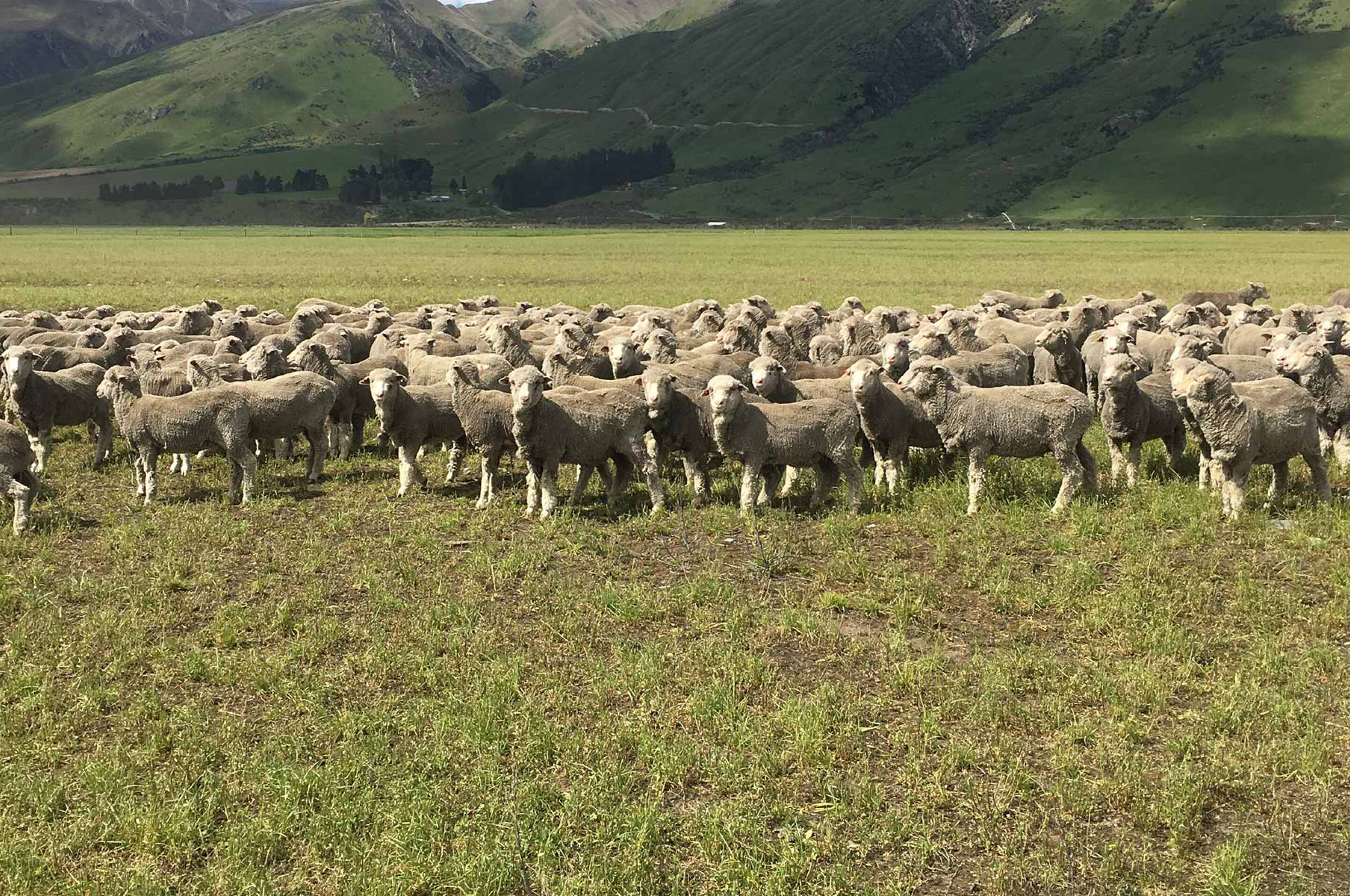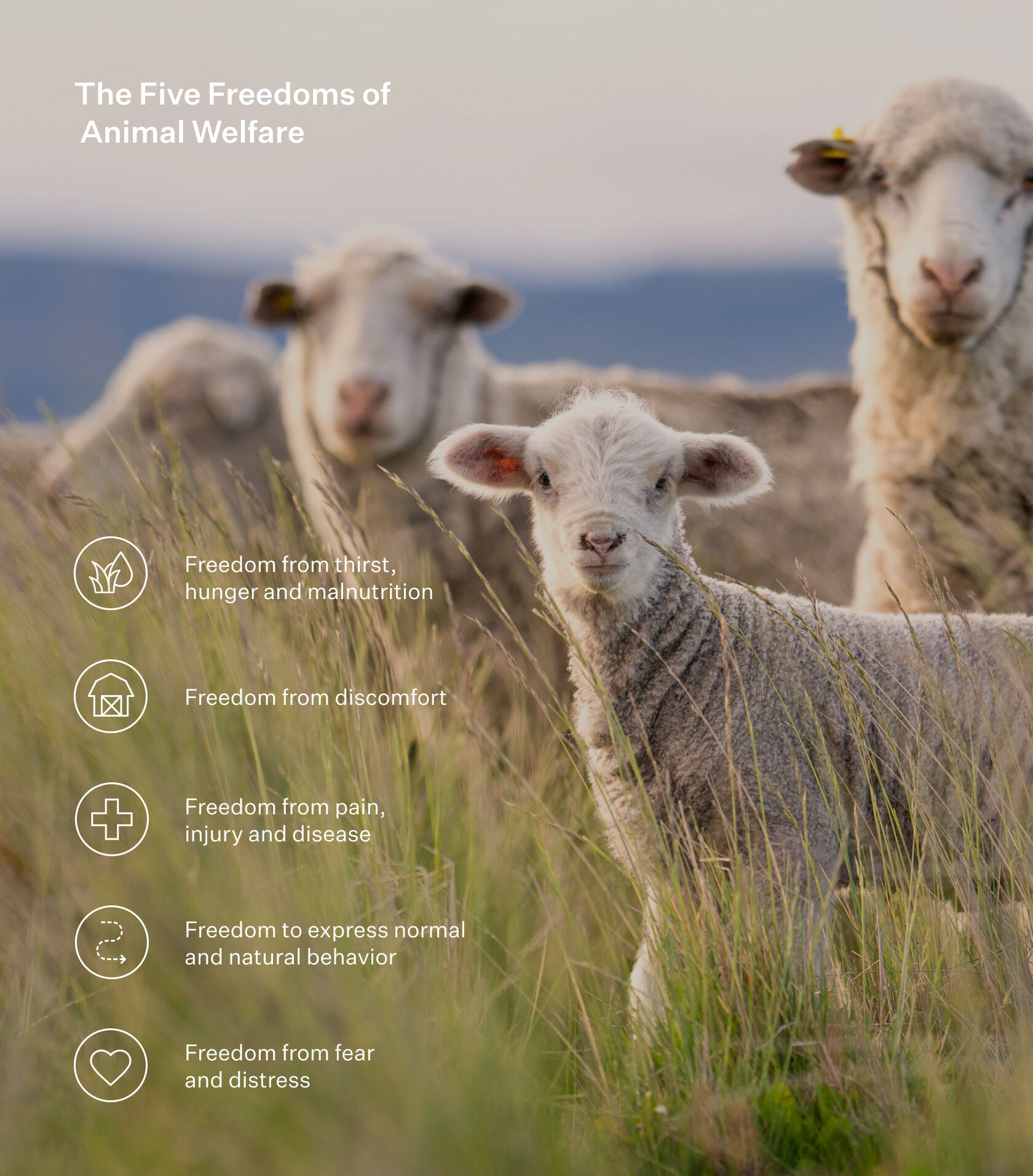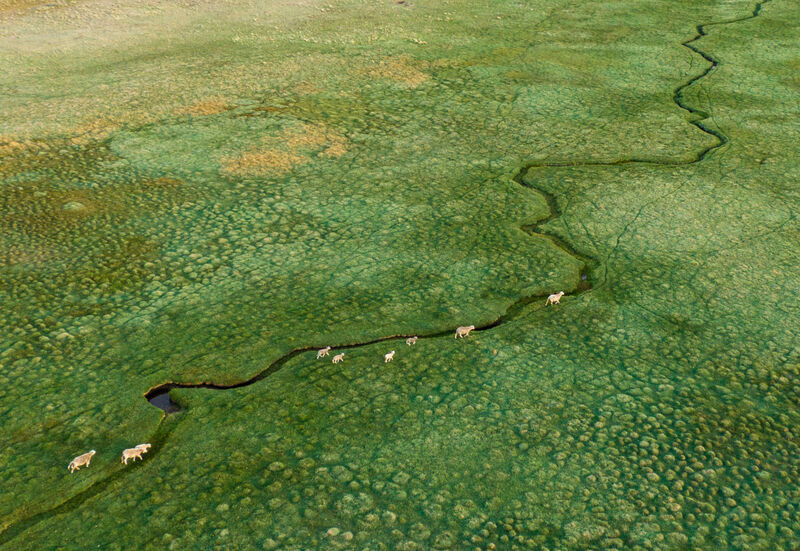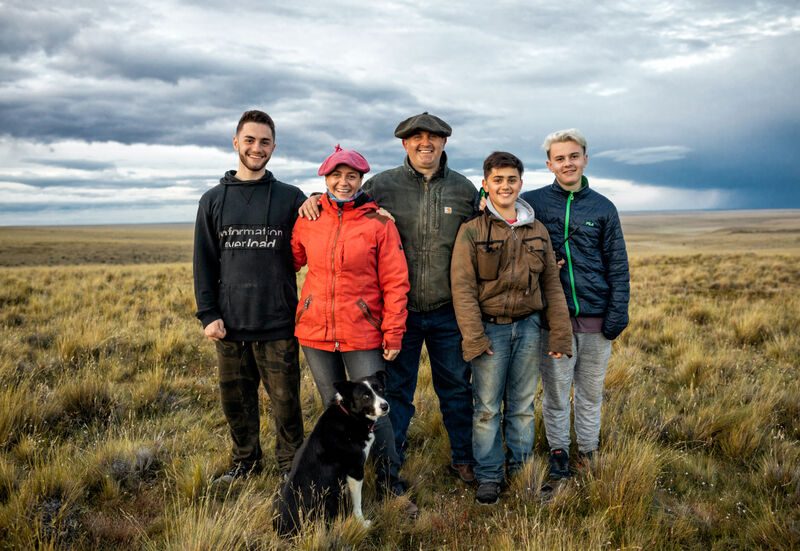Better for Sheep, Better for Land. Our Responsible Wool.

A better kind of merino that supports the welfare of sheep and the land they graze on. It’s part of our commitment to tracing our wool from farm to factory.
Every year, 1 billion sheep produce 2 million metric tons of wool. Most of it is bought and sold by a complex web of brokers and middlemen, making it virtually impossible to trace fibers back to the farm they came from. For 30 years, all our merino wool was part of that system. That changed in 2018, when we became one of the first brands to introduce wool certified to the Responsible Wool Standard (RWS).
“Responsible wool means that we know exactly what farms produce our wool and how the animals and the land were managed,” says Megan Meiklejohn, former EILEEN FISHER Sustainable Materials and Transparency Manager. “It’s an entirely new supply chain—we had to reinvent how we source our wool from scratch.”
Starting over meant 3 years of research. We visited farms in South America, New Zealand and Australia. We met with veterinarians, biologists and industry experts. We ran quality tests with our yarn spinners. And we joined like-minded brands in consulting with Textile Exchange, the nonprofit that introduced RWS in 2016. Today, we’re proud to offer a better kind of merino, one that’s every bit as soft as the wool you know and love, with a little something extra: the satisfaction of knowing how your sweater was made.

THE IMPACT ON SHEEP
The RWS ensures that sheep are treated with respect to their Five Freedoms, an internationally accepted set of standards defined by the Farm Animal Welfare Committee. Controversial practices such as mulesing, a procedure in which skin around the sheep’s backside is removed to prevent parasitic infections, are strictly prohibited.
WHAT WE'VE SEEN ON OUR VISITS:
Sheep are kept “free from fear and distress” with low-stress handling—no loud barking, no nipping dogs. “Getting sheep to move from Point A to Point B can be as simple as standing in the right spot,” explained Chad Taylor of Mumblebone Merino in Australia. “They’ll move more freely if they’re not scared.”


THE IMPACT ON LAND
When sheep are allowed to overgraze, they can degrade the soil and cause erosion or desertification, which can be exacerbated by an increasingly warming climate. RWS addresses the environmental impacts of overgrazing, requiring farmers to adopt holistic practices that maintain soil health, which in turns supports biodiversity and protects native species.
WHAT WE'VE SEEN ON OUR VISITS:
In Argentina, the farmers we work with are going above and beyond RWS. In partnership with Ovis 21, they’re using sheep to regenerate 1.2 million acres of depleted grassland in Patagonia. By herding sheep in patterns that mimic nature, they’re restoring soil health (dung adds important nutrients, and sheep hooves turn over dead plants and stimulate new root growth). The unseen benefit: healthy soil sequesters carbon, helping to combat climate change. Learn more about our regenerative wool.
BUSINESS AS A MOVEMENT
At EILEEN FISHER, we’re committed to designing clothes that help make things better, not just do less harm. That’s why in addition to being a pioneering brand in support of RWS, we’re proud to have joined the Savory Institute’s Land to Market program, which is working to track soil health, biodiversity and ecosystem function. It’s our hope that this commitment will help bring the importance of regenerative agriculture to the forefront of the fashion industry.
“We are passionate about sourcing the best possible fabrics to create clothes that leave a positive impact on the world. I’m so proud that our core merinos meet—and in many cases exceed—the Responsible Wool Standard.”


